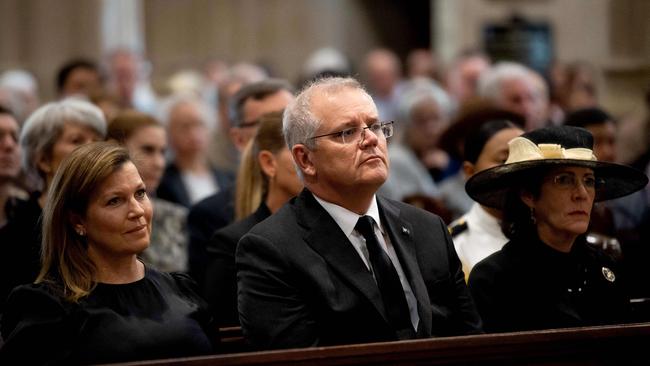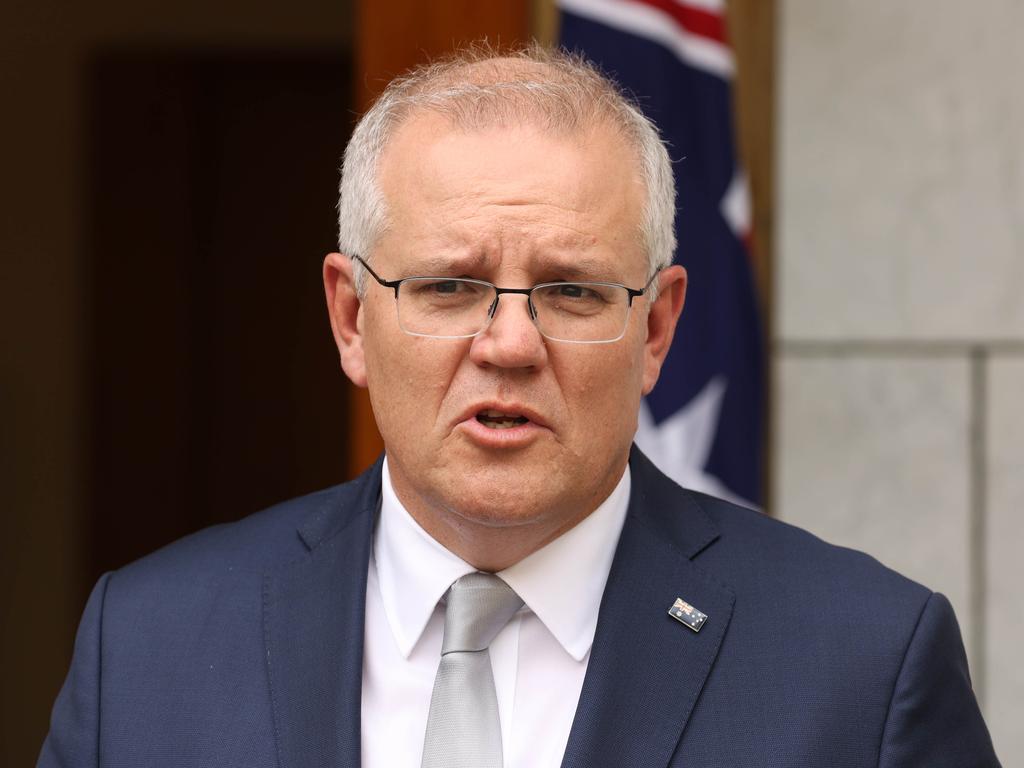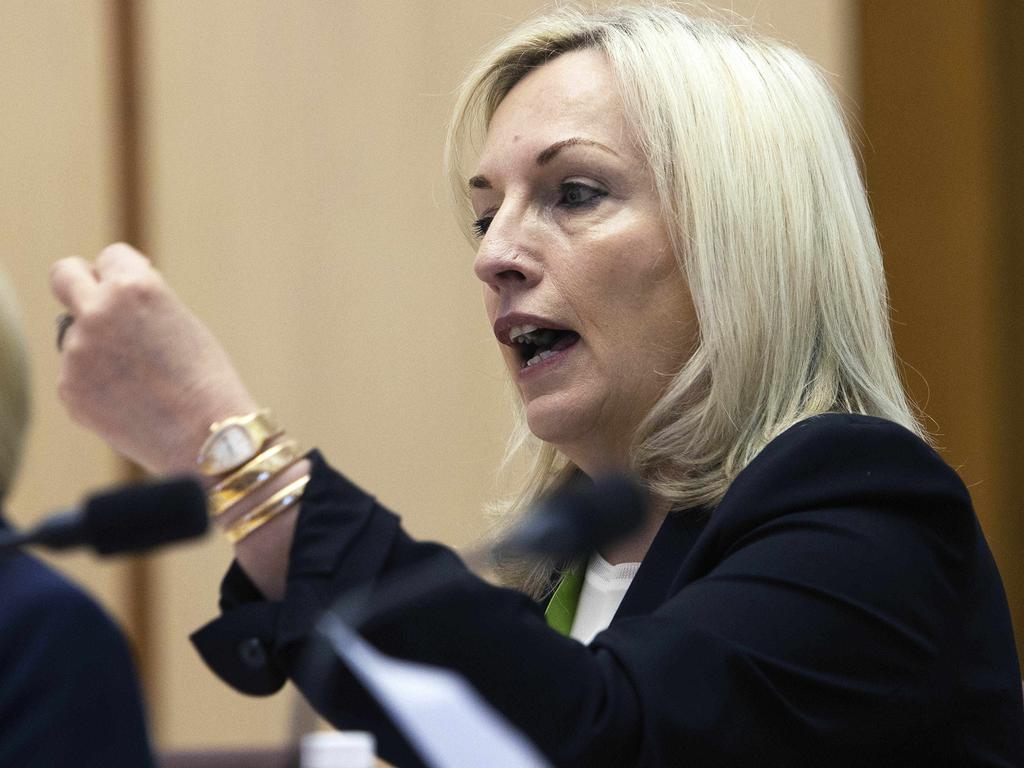Pile-on from the Morrison haters is likely to backfire
It’s been a conga-line of failures from Team Morrison, but public disappointment is a long way from visceral anger.

But has the negativity permeated the mainstream? Electorally this is the question that really matters. Right now there is evidence that mainstream voters are disappointed with the government’s performance, and that of Morrison. And these are not just the usual suspects whose expectations he can never meet.
However, disappointment is a long way from visceral anger. That level of emotional disdain has yet to penetrate the mainstream significantly.
Make no mistake, the risk of such feelings becoming embedded in the mainstream isn’t far off, especially when it comes to problems associated with the vaccine rollout but also the mounting evidence that we are led by a Prime Minister out of touch with half the population.
Morrison’s treatment of Holgate in particular was appalling, something I wrote about in these pages long before it became fashionable to take up her cause.
The latest Newspoll showing the Coalition down 48-52 per cent won’t alarm Liberal strategists, even if it does alert them to problems afoot. Morrison’s satisfaction rating of 55 per cent is much higher than a terminal prime minister’s rating. Essential Media had it at a similarly high 54 per cent last week. When you consider how much of the public outpourings of anger has been directed at Morrison personally, such high ratings are perhaps surprising.
The dangers attached to a botched vaccine rollout run deep for the Coalition. Falling short of expectations could send the government into a political tailspin in the wake of all the other problems. Getting the rollout right is a competence issue, not one Team Morrison wants to be seen to fail.
Let’s face it, aside from the federal government’s handling of the pandemic, which has been helped along by the all-important role of the states and has earned a positive voter response, we’ve witnessed a conga line of failures from bushfires to sports rorts and robodebt. Few could seriously contend that the Morrison government has been a particularly good one, and it comes off the back of two prime ministers in the Coalition’s first five years in office.
But mainstream voters cast their ballots for many reasons. One is out of fear, and there is fear out there that Labor isn’t up to the challenges of managing the post-pandemic economy. Such fears may not be warranted but they are real. Voters also probably doubt Labor’s capacity to manage the vaccine rollout any better than the Coalition. Which is why Labor is working overtime to land political blows over the delays.
It was bad timing for Chris Bowen to be shuffled out of the opposition health portfolio, replaced by Mark Butler. Bowen was shifted into the climate change portfolio because of doubts over Butler’s skills, yet Butler now has the most important shadow portfolio counting down to the election.
One risk Morrison’s critics likely haven’t thought about is that the mainstream rebels against the pile-on, regarding it as over the top, a pile-on driven by so-called elites or Morrison haters. I know them when I see them because I’ve had honorary membership for some time, courtesy of many and varied attacks on the Prime Minister’s failings since he took office. Such underperformances are chronicled in the new book by Wayne Errington and me, How Good is Scott Morrison?
John Howard was elected and re-elected on no fewer than four occasions from 1996 to 2007, becoming Australia’s second longest serving prime minister. It drove the Howard haters wild, but the so-called Howard battlers were responsible for his political success in the face of overwhelming criticisms from the commentariat.
Howard pioneered the technique of using talkback radio to bypass the filter of the Canberra press gallery. Errington and I wrote about that phenomena in our book John Winston Howard: The Biography. Morrison likes to copy that technique.
There is little doubt Morrison’s task at the next election is a difficult one, and he continues to make it more difficult for himself.
The Coalition is shooting for a fourth term in office even though Morrison is effectively only in his first term as Prime Minister. Throw in that the government no longer has a clear majority and the recent redistribution in Western Australia has abolished a Liberal seat, and the task of re-election gets even harder.
But it could be made easier if mainstream voters believe criticisms of a Prime Minister for whom they have voted previously and to whom they give credit for steering the country through the pandemic are over the top. That regularly happened with Howard.
Every time the Howard haters overplayed their hand, the Howard battlers gravitated closer to their prime minister. Every time, that is, until the last time, when Howard went too far legislating Work Choices and overstayed his political welcome contesting a fifth straight election.
The unknown question is whether this looming election for Morrison equates to Howard’s Waterloo in 2007, when he lost at the hands of Kevin Rudd, or the false dawn of the 2004 election when the Howard haters were out in force on issues such as the Iraq war, cheering on then Labor leader Mark Latham.
That’s right, they were some of Latham’s biggest advocates. How times change! Latham entered the six-week 2004 campaign leading 54-46 per cent in the polls. Labor not only lost the election, it lost seats in every state, thus going backwards.
At the time the mainstream wasn’t quite ready to move on from the Coalition. The visceral anger within cohorts of the community wasn’t shared by voters in key marginal seats.
Of course Morrison is no Howard, and the electoral map looks harder for Morrison than it ever did for Howard. The seats Morrison must retain in WA and Queensland are at a very high watermark, and he’s likely to take a hit in southern states such as Victoria and Tasmania. NSW — Morrison’s home state — appears to be the key to the government picking up seats. But you can bet federal Liberal Party director Andrew Hirst will be scouring the country for other opportunities.
Australians don’t respond well to being told what to do, especially when being lectured by anyone on a high horse. Rightly or wrongly, a lot of marginal-seat voters feel that way a lot of the time.
Whatever happens there is little doubt that the election will be closer than the impression you might get if all you read is social media or what the commentariat has to say. It’s hard to imagine 55 per cent of them are satisfied with Morrison’s performance.
Peter van Onselen is a professor of politics and public policy at the University of Western Australia and Griffith University.







There is a great deal of rage being directed at Scott Morrison and his government, much of it for good reason. The fallout from his handling of sexual assault allegations, the treatment of former Australia Post chief executive Christine Holgate and the problems with the COVID-19 vaccine rollout are but three areas where the Prime Minister is under siege.